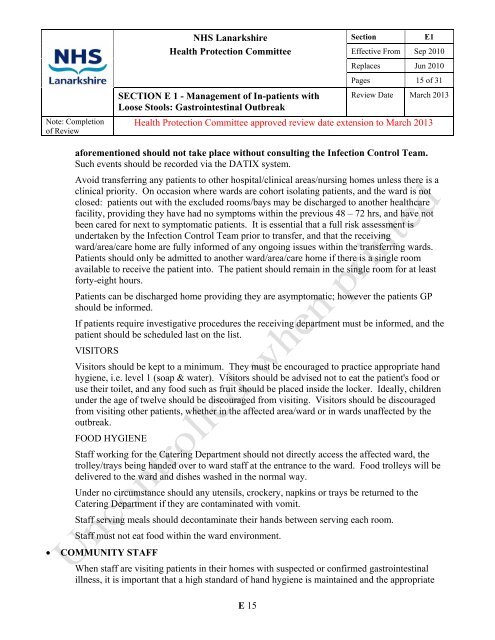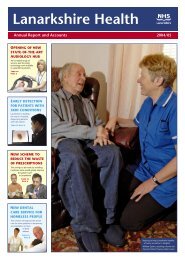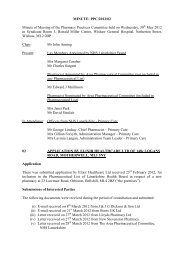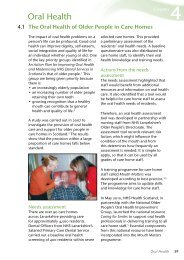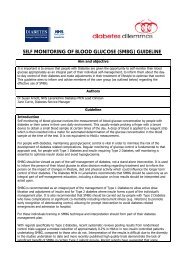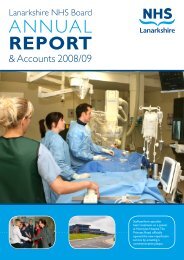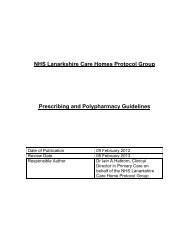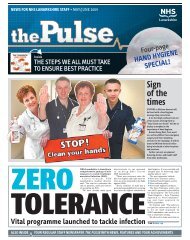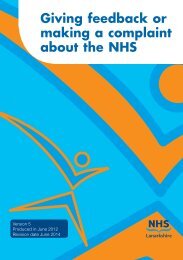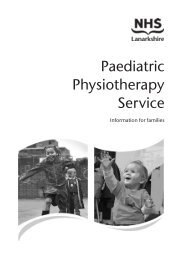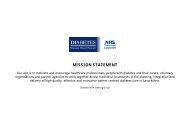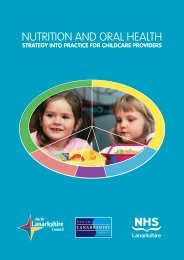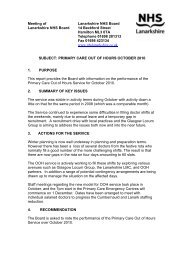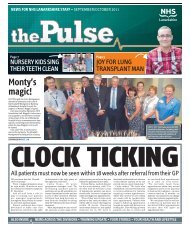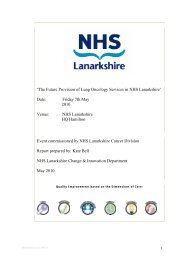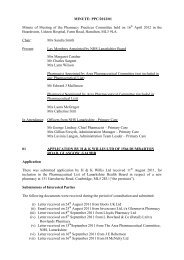Management of In-patients with Loose Stools ... - NHS Lanarkshire
Management of In-patients with Loose Stools ... - NHS Lanarkshire
Management of In-patients with Loose Stools ... - NHS Lanarkshire
You also want an ePaper? Increase the reach of your titles
YUMPU automatically turns print PDFs into web optimized ePapers that Google loves.
Note: Completion<br />
<strong>of</strong> Review<br />
<strong>NHS</strong> <strong>Lanarkshire</strong><br />
Health Protection Committee<br />
Section E1<br />
Effective From Sep 2010<br />
Replaces Jun 2010<br />
Pages 15 <strong>of</strong> 31<br />
SECTION E 1 - <strong>Management</strong> <strong>of</strong> <strong>In</strong>-<strong>patients</strong> <strong>with</strong><br />
<strong>Loose</strong> <strong>Stools</strong>: Gastrointestinal Outbreak<br />
Review Date March 2013<br />
Health Protection Committee approved review date extension to March 2013<br />
aforementioned should not take place <strong>with</strong>out consulting the <strong>In</strong>fection Control Team.<br />
Such events should be recorded via the DATIX system.<br />
Avoid transferring any <strong>patients</strong> to other hospital/clinical areas/nursing homes unless there is a<br />
clinical priority. On occasion where wards are cohort isolating <strong>patients</strong>, and the ward is not<br />
closed: <strong>patients</strong> out <strong>with</strong> the excluded rooms/bays may be discharged to another healthcare<br />
facility, providing they have had no symptoms <strong>with</strong>in the previous 48 – 72 hrs, and have not<br />
been cared for next to symptomatic <strong>patients</strong>. It is essential that a full risk assessment is<br />
undertaken by the <strong>In</strong>fection Control Team prior to transfer, and that the receiving<br />
ward/area/care home are fully informed <strong>of</strong> any ongoing issues <strong>with</strong>in the transferring wards.<br />
Patients should only be admitted to another ward/area/care home if there is a single room<br />
available to receive the patient into. The patient should remain in the single room for at least<br />
forty-eight hours.<br />
Patients can be discharged home providing they are asymptomatic; however the <strong>patients</strong> GP<br />
should be informed.<br />
If <strong>patients</strong> require investigative procedures the receiving department must be informed, and the<br />
patient should be scheduled last on the list.<br />
VISITORS<br />
Visitors should be kept to a minimum. They must be encouraged to practice appropriate hand<br />
hygiene, i.e. level 1 (soap & water). Visitors should be advised not to eat the patient's food or<br />
use their toilet, and any food such as fruit should be placed inside the locker. Ideally, children<br />
under the age <strong>of</strong> twelve should be discouraged from visiting. Visitors should be discouraged<br />
from visiting other <strong>patients</strong>, whether in the affected area/ward or in wards unaffected by the<br />
outbreak.<br />
FOOD HYGIENE<br />
Staff working for the Catering Department should not directly access the affected ward, the<br />
trolley/trays being handed over to ward staff at the entrance to the ward. Food trolleys will be<br />
delivered to the ward and dishes washed in the normal way.<br />
Under no circumstance should any utensils, crockery, napkins or trays be returned to the<br />
Catering Department if they are contaminated <strong>with</strong> vomit.<br />
Staff serving meals should decontaminate their hands between serving each room.<br />
Staff must not eat food <strong>with</strong>in the ward environment.<br />
COMMUNITY STAFF<br />
When staff are visiting <strong>patients</strong> in their homes <strong>with</strong> suspected or confirmed gastrointestinal<br />
illness, it is important that a high standard <strong>of</strong> hand hygiene is maintained and the appropriate<br />
E 15


